Counting skills Easy Word Problems Worksheets for Ages 3-7
6 filtered results
-
From - To
Unlock your child's mathematical potential with our Counting Skills Easy Word Problems Worksheets, specially designed for ages 3-7. These engaging worksheets encourage young learners to practice counting through fun and relatable scenarios, making math enjoyable. Each problem is tailored to foster critical thinking and problem-solving skills while developing a strong foundation in early math concepts. Perfect for homeschooling, classroom settings, or even extra practice at home, these worksheets are an invaluable resource for nurturing your child's counting abilities. Help your little ones gain confidence and proficiency in mathematics as they complete each interactive task with joy and enthusiasm!
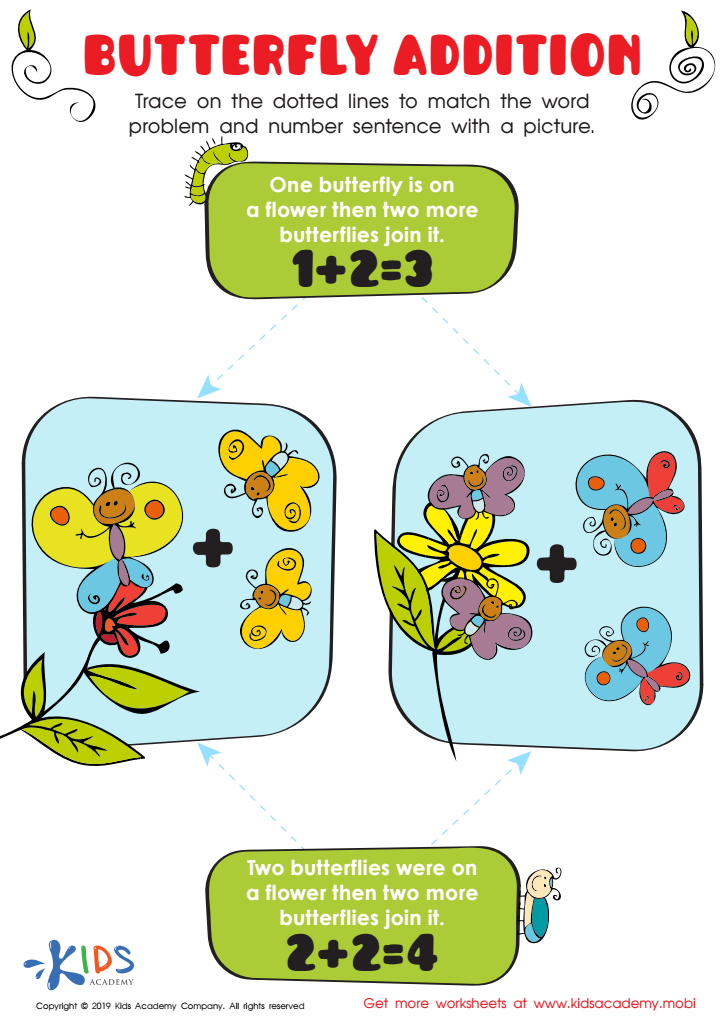

Butterfly Addition Worksheet


Counting Seedlings Worksheet
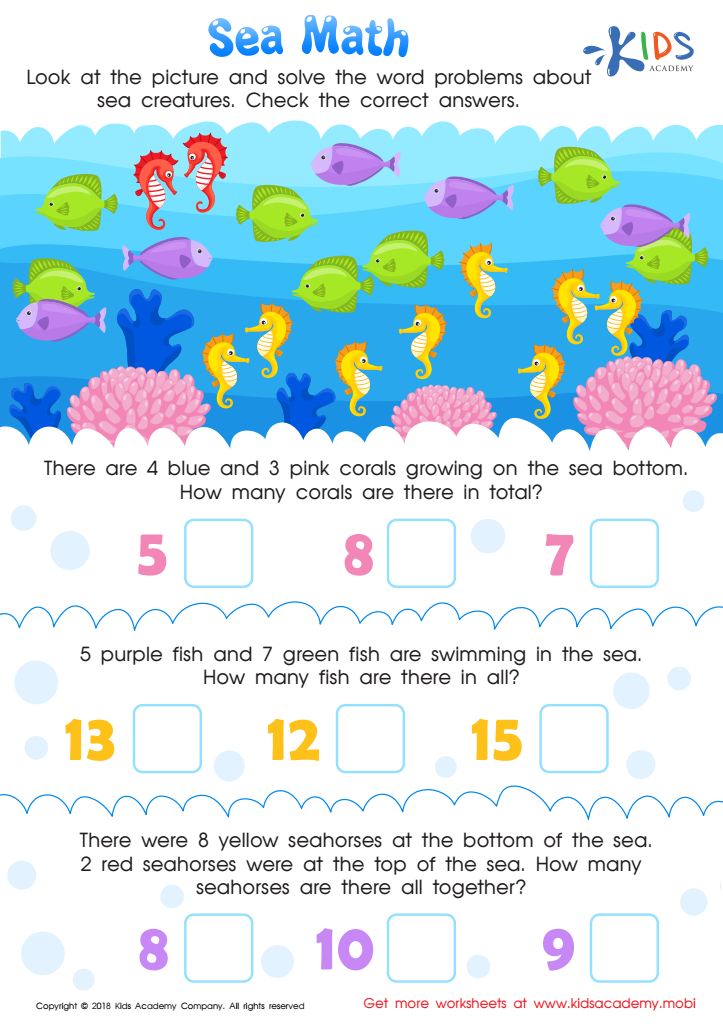

Sea Math Worksheet
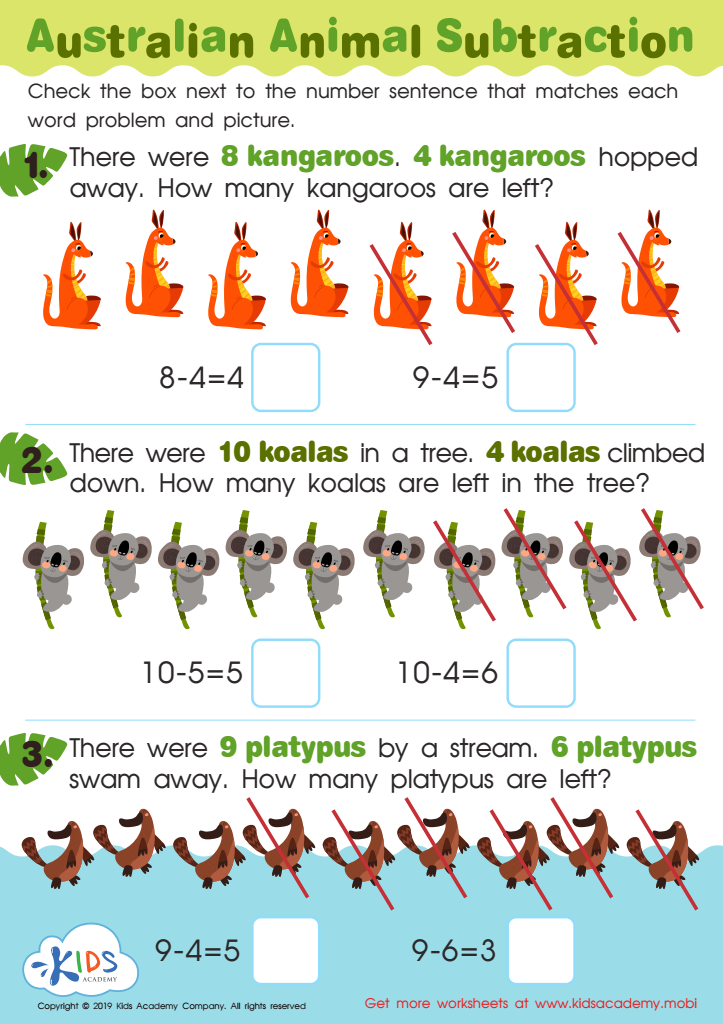

Australian Animal Subtraction Worksheet
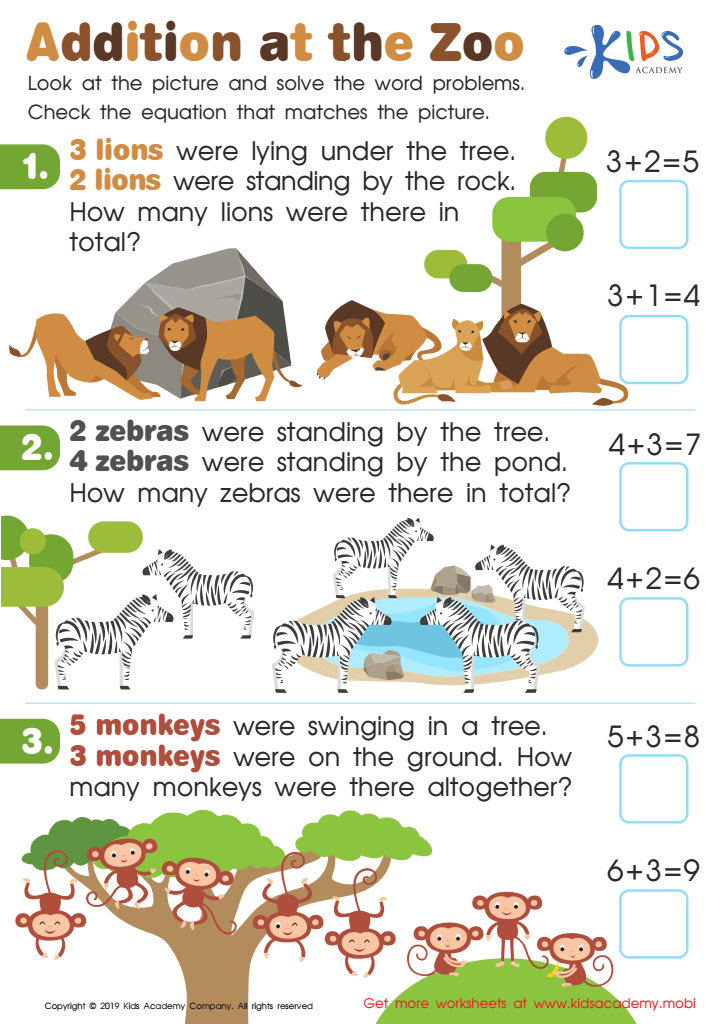

Addition at the Zoo Worksheet
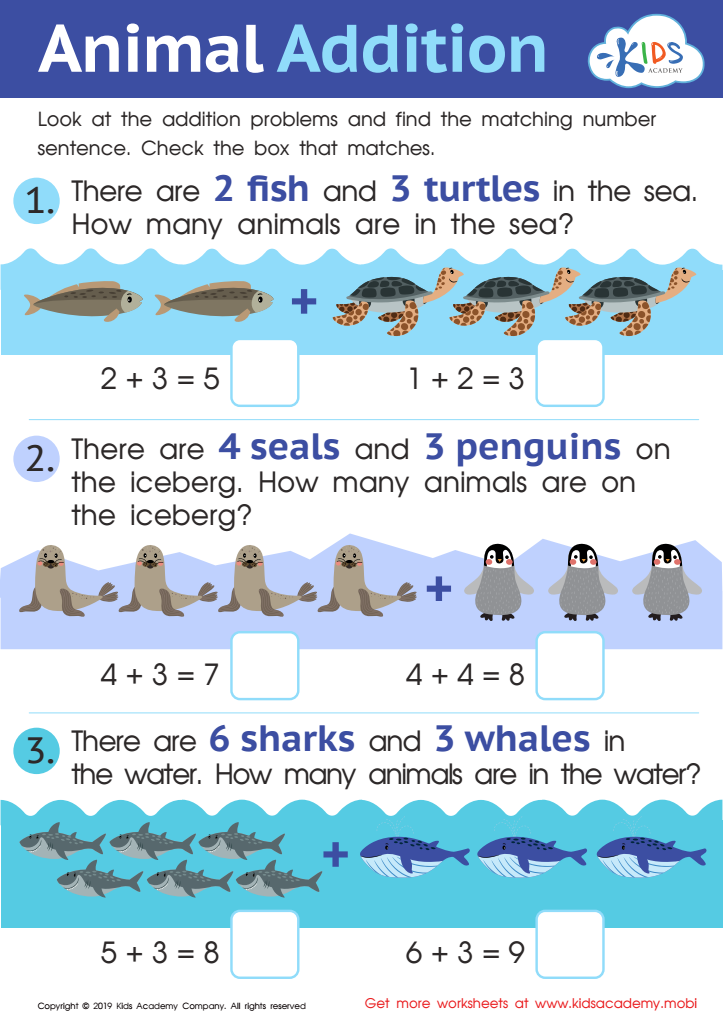

Animal Addition Worksheet
Counting skills and easy word problems provide a crucial foundation for children's early mathematical development. For parents and teachers, fostering these skills supports cognitive growth and problem-solving abilities essential for later learning. Counting teaches children number recognition, sequencing, and quantity, vital for understanding more complex mathematical concepts in the future.
Engaging with easy word problems at a young age enhances critical thinking and comprehension skills. Children learn to analyze situations and apply their counting skills in contextual scenarios, bridging the gap between abstract math and real-life situations. This practice also encourages language development as they work through the problems, strengthening both verbal and mathematical literacy.
Moreover, strong counting skills can boost a child's confidence in their abilities, promoting a positive attitude toward learning. Encouraging playful learning experiences at home or in school environments solidifies these concepts, making math feel accessible and enjoyable.
By prioritizing counting skills and easy word problems, parents and teachers help shape a robust educational foundation that prepares children for more advanced mathematical challenges and overall academic success, instilling a lifelong love for learning.
 Assign to My Students
Assign to My Students





















